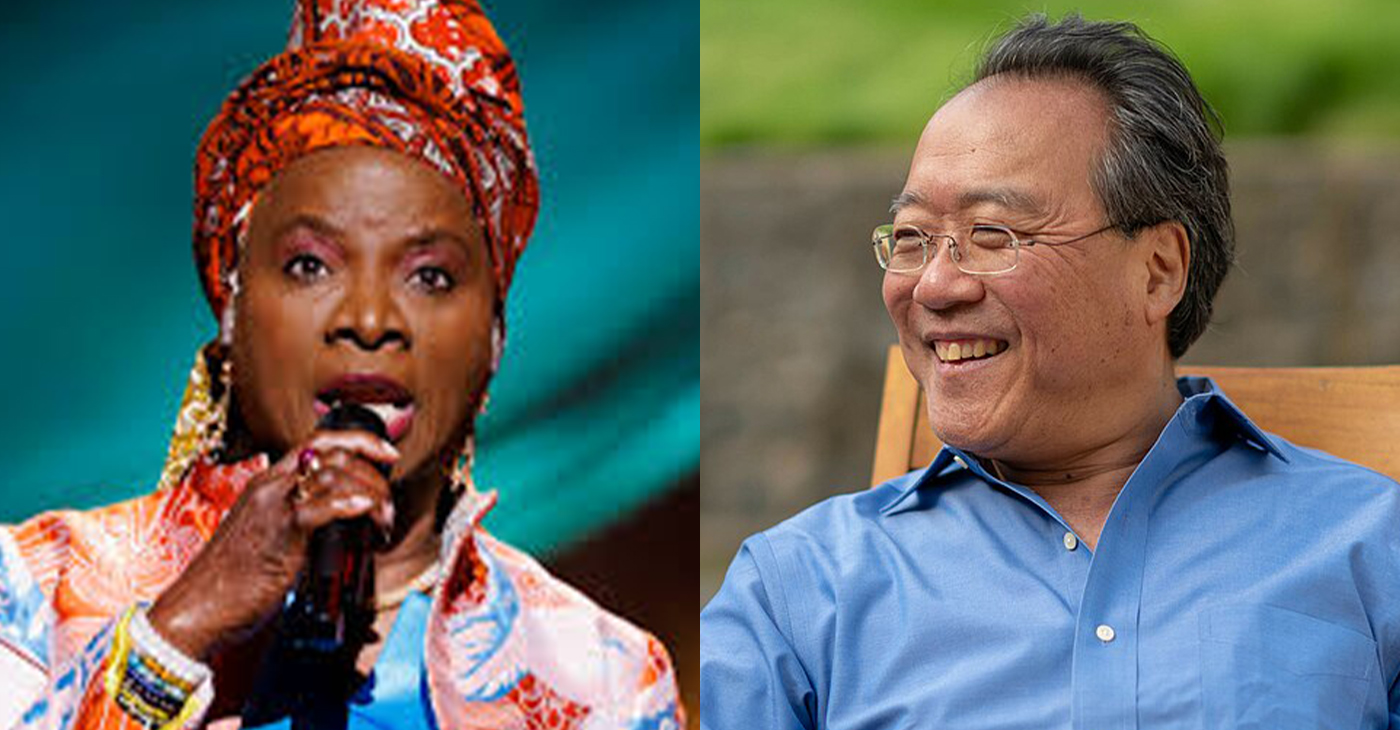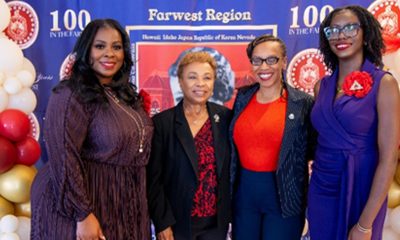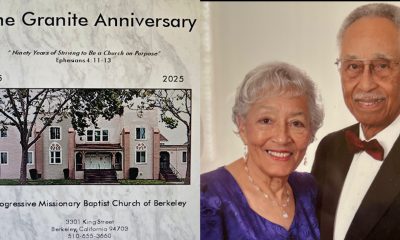Berkeley
Opinion – Generation Lost – UC Berkeley’s Missing Black Graduates

In the mid-1960s, the University of California, Berkeley, started its Educational Opportunity Program to target underrepresented applicants and combat its history of discrimination.
Unsurprisingly, this program was a success and the number of Black freshmen continued to rise until 1996. That year, Gov. Pete Wilson and Black conservative politician Ward Connerly led an effort to repeal these education gains by passing Proposition 209.
Prop. 209 prohibited public universities from considering race and ethnicity in admissions decisions, which has closed Berkeley’s doors to countless minority students. But Black students were hit especially hard.
After Prop. 209, Black freshman enrollment at Berkeley dropped from 258 to 126. The numbers at professional schools were even more troubling. For example, there was only one Black student among Berkeley Law’s 268 first-year students. The lack of Black students at Berkeley has not improved with time.
Since Prop. 209 passed, the percentage of Black enrollees at Berkeley has only once reached 4%, and the percentage has hovered around 3% since 2007. Had the percentage of Black freshman stayed at pre-209 levels, there would have been 4,061 more Black enrollees since 1998 at Berkeley. This has also led to declining participation in science, technology, degree attainment, average wages, and the likelihood of earning higher wages throughout to the Black community.
Meanwhile, a state auditor found that UC Berkeley, UCLA, UC Santa Barbara, and UC San Diego admitted dozens of unqualified students based on their connections to staff and donors since 2013.
Each one of those admissions came at the expense of other qualified applicants, with most of the freshmen spots going to white applicants from families making at least $150,000 per year.
Specifically, the auditor scolded UC Berkeley because their admissions practices for the wealthy and well-connected “demonstrates that campus leadership has failed to establish a campus culture that values commitment to an admissions process based on fairness and applicants’ merits and achievements.”
While Prop. 209 has hamstrung Berkeley’s ability to recruit Black students, public universities from 41 other states can still take race into account when making college admissions decisions.
This is also true of private universities that still consider race and ethnicity in their admissions policies to create avenues for Black applicants to access higher education.
For example, Stanford’s Fall 2019 freshman class was 8% Black or African American. That percentage nearly triples Berkeley’s freshman class for last year. Those numbers are even worse when omitting student-athletes.
California’s ban on affirmative action perversely limits our top universities from enrolling promising minority students and forces those that do enroll to jump through hoops just to get there. At the same time, it immeasurably strips the Black community of economic opportunity.
Black taxpayers have continued supporting California’s public universities while receiving less and less for that investment. The effect of Prop. 209 is that Black students who have been able to succeed—often at under-resourced K-12 schools—are then penalized in the college admissions process. This further compounds on the negative impact of the inequities these students are forced to confront and overcome just to graduate high school.
According to the Economist, college graduates earn about $17,500 more annually than those with a high school diploma. The economic losses on an individual level pale in comparison to the countless dollars in lost opportunities for Black businesses, decades-long deficits in educational opportunities for Black students, and nearly two generations of losses of Black business owners, lawyers, engineers, nurses, and doctors.
The harm to Black communities in the Bay Area will be felt for decades as California has sent fewer students to the state’s flagship training ground for business and community leadership. Because of Prop. 209, the wealthy and well-connected in California continue to control access to lucrative careers that are only accessible to alumni from top universities, and they keep cherry-picking successors that look just like them.
Prop. 16 gives the next generation of students a deserved and enhanced opportunity to achieve success in surmounting those inequities—and they, our universities, and this society would be much better off for it. We desperately need something new in California.
Prop. 16 will begin to prove that our lives matter by taking back our hard-won rights to equal opportunities in jobs, business, housing, and college admissions for Black Californians. Prop. 16 is a key tool for expanding opportunities for young Black people, and we need your vote in November to make that opportunity a reality.
Dr. Harry Edwards is a Professor Emeritus at U.C. Berkeley and founder of the Olympic Project for Human Rights.
Arts and Culture
Farwest Region Deltas Celebrate Centennial With “September Breakfast” Honoring Vivian Osborne Marsh
The region was established in 1925 under the leadership of Vivian Osborne Marsh, who became its first Regional Director. Marsh was a pioneering scholar and civic leader, earning recognition as the first Black woman to receive both a bachelor’s and a master’s degree in anthropology from UC Berkeley.

By Antoinette Porter
Hundreds of members of Delta Sigma Theta Sorority, Inc., and their guests gathered at the Martin Luther King Jr. Student Union at the University of California, Berkeley, to mark the 100th anniversary of the sorority’s Farwest Region.
The region was established in 1925 under the leadership of Vivian Osborne Marsh, who became its first Regional Director. Marsh was a pioneering scholar and civic leader, earning recognition as the first Black woman to receive both a bachelor’s and a master’s degree in anthropology from UC Berkeley.
Marsh went on to serve as Delta Sigma Theta’s 7th National President, where she launched the sorority’s National Library Project to expand access to books in underserved Black communities in the South. During her presidency, the organization also became a prominent voice in the civil rights movement, lobbying Congress to pass anti-lynching legislation.
Bak in the Bay Area, Marsh devoted her career to advancing educational opportunities, mentoring young people, and strengthening community life. That commitment continues to shape the region, which supports initiatives in education, social justice, and economic development. Current projects include raising scholarship funds for students at Historically Black Colleges and Universities, voter education campaigns, and health and wellness programs.
A century after its founding, the Farwest Region of Delta Sigma Theta remains active across California and other western states, carrying forward Marsh’s vision of service and advocacy.
Arts and Culture
Cal Performances Presents Angélique Kidjo & Yo-Yo Ma in Sarabande Africaine at UC Berkeley Greek Theatre on Aug. 30
On Saturday, Aug. 30, the pair will debut the Bay Area premiere of Sarabande Africaine, joined by pianist Thierry Vaton, percussionist David Donatien, and special guest Sinkane. The program illuminates centuries of musical interplay between African traditions and Western classical forms, using the Baroque sarabande dance, and its African ancestor, the Congolese spirit dance Zarabanda, as a gateway to exploring the deep, interconnected roots of global music.

By Carla Thomas
On Labor Day weekend two of the world’s most celebrated musicians and cultural ambassadors, Grammy Award–winning vocalist Angélique Kidjo and legendary cellist Yo-Yo Ma join forces for an evening of music, history, and cultural dialogue at UC Berkeley’s historic Hearst Greek Theatre.
On Saturday, Aug. 30, the pair will debut the Bay Area premiere of Sarabande Africaine, joined by pianist Thierry Vaton, percussionist David Donatien, and special guest Sinkane. The program illuminates centuries of musical interplay between African traditions and Western classical forms, using the Baroque sarabande dance, and its African ancestor, the Congolese spirit dance Zarabanda, as a gateway to exploring the deep, interconnected roots of global music.
Both Kidjo and Ma have built careers not only as great performers but as passionate advocates for cultural understanding. Sarabande Africaine is as much a conversation about shared heritage as it is a musical performance, blending genres, geographies, and histories.
“Every day there are moments when all of us can feel we are on the inside of something and also when we feel we are on the outside of something,” said Yo-Yo Ma. “To be able to understand both at the same time and oscillate between the two gives us a larger perspective on the world.”
“If your mind is open, and there is no fear, it’s easier to listen, and to question yourself,” said Kidjo.
The upcoming performance is presented within Cal Performances’ Illuminations: “Exile & Sanctuary” series for the 2025–26 season. The production explores exile as more than just physical displacement, but a disruption in identity and belonging, while sanctuary represents both refuge and the creative space where new connections and communities can take shape.
Cal Performances’ Illuminations bridges performances with UC Berkeley’s academic research, pairing the arts with conversations about urgent global issues.
Kidjo’s continued partnership with Cal Performances includes her 2021–22 artist-in-residence, premiering her music-theater work Yemandja, set in 19th-century West Africa during the transatlantic slave trade.
She also participated in the Bias in Our Algorithms and Society panel alongside campus leaders like Jennifer Chayes, and joined the Black Studies Collaboratory for a dialogue on music, diaspora, and the world.
She has since returned to Berkeley for multiple performances, most recently in 2024 at Zellerbach Hall.
Yo-Yo Ma’s history with Cal Performances spans decades, beginning in 1997. One notable project includes the 2018 performance of Bach’s complete cello suites at the Greek Theatre, a testament to his devotion to creating “transformative concert experiences in iconic spaces.”
For tickets and more information, visit calperformances.org.
Activism
The Case Against Probate: False Ruling Invalidates Black Professor’s Estate Plan, Ignoring 28-Year Relationship
Zakiya Folami Jendayi, beneficiary of Head’s estate, states that “The errors, ranging from misstatements of fact, omissions of critical evidence, and reliance on false arguments and testimony, formed the basis of Judge Sandra K. Bean’s ruling against me, Dr. Head’s previous student, mentee, sorority sister and long-time friend,and despite the fact that I was her chosen, power of attorney, Advanced Healthcare Directive agent, trustee, executor and sole beneficiary.”

By Tanya Dennis
Part 5
In a shocking miscarriage of justice, a California probate judge issued a Statement of Decision on March 28 riddled with numerous documented errors that invalidated the estate plan of esteemed Black Studies professor Dr. Laura Dean Head.
The ruling from the Alameda County Superior Court’s probate division in Berkeley has sparked outrage from advocates for probate reform, community members and civil rights activists, who say the decision reflects deep flaws in the probate system, blatant disregard for due process, and the wishes of the ancestors. Judge Sandra Bean’s ruling reflects a repeated outcome seen in Black and Brown communities.
Zakiya Folami Jendayi, beneficiary of Head’s estate, states that “The errors, ranging from misstatements of fact, omissions of critical evidence, and reliance on false arguments and testimony, formed the basis of Judge Sandra K. Bean’s ruling against me, Dr. Head’s previous student, mentee, sorority sister and long-time friend,and despite the fact that I was her chosen, power of attorney, Advanced Healthcare Directive agent, trustee, executor and sole beneficiary.”
Reading court transcripts, the most egregious violations according to Jendayi reveal a pivotal point in the ruling that rested on a letter from Dr. Stephan Sarafian of Kaiser Permanente, who misidentified Dr. Head as male, misstated the day, month, and year, and asserted Head lacked capacity.
Under cross-examination, he reversed his opinion and admitted under oath that he never conducted a mental evaluation, did not diagnose Dr. Head with incapacity, did not write the letter, and stated he merely signed it “in case it was needed in the future.”
Despite Sarafian’s perjury, on Oct. 17, 2024, the California Court of Appeal upheld the lower court decision that relied on Sarafian’s discredited letter to invalidate Dr. Head’s estate plan, ignored Jendayi’s requests to impeach his testimony and dismiss Sarafian’s testimony and letter that both the Kaiser Grievance Department and the Medical Board of California denounced.
In her ruling, Judge Bean agreed with the false argument by attorney Leahy, which alleged that Jendayi provided the names of the beneficiaries to Head’s estate attorney, Elaine Lee. Bean made this decision despite Lee’s sworn testimony that Dr. Head had met with her alone, behind closed doors, and made the independent decision to leave her estate to Jendayi.
According to court records, Judge Bean reversed the burden of proof in the undue influence claim before any of Jendayi’s witnesses testified, forcing Jendayi to disprove allegations that were never substantiated by witnesses or records.
Bean ruled: “Respondent took Dr. Head to her apartment where she assumed complete control of Dr. Head’s day-to-day care, medical care, and all aspects of her life.” Jendayi proved that statement was false.
Bean also ruled that Respondent controlled Dr. Head’s necessities of life, food, and hospice care, despite zero testimony or documentation supporting any of those claims.
The court reduced Jendayi’s role to “a friend who, at best, cared for Dr. Head during the final two months,” totally ignoring 28 years of friendship, testimony, evidence, letters of recommendation, emails, and medical records.
Exhibits confirming Dr. Head’s intent and capacity, including the discredited medical letter, Exhibit 90, were omitted or misrepresented in the judge’s final decision.
Jendayi says, “The injustice within the probate justice system is devastating, traumatizing and financially depleting. It’s nothing short of legalized crime!”
Jendayi is now appealing to the Supreme Court of the U.S. with a petition citing denial of due process, judicial misconduct, and systemic bias in probate courts.
-

 Alameda County4 weeks ago
Alameda County4 weeks agoSeth Curry Makes Impressive Debut with the Golden State Warriors
-

 #NNPA BlackPress4 weeks ago
#NNPA BlackPress4 weeks agoLIHEAP Funds Released After Weeks of Delay as States and the District Rush to Protect Households from the Cold
-

 #NNPA BlackPress4 weeks ago
#NNPA BlackPress4 weeks agoSeven Steps to Help Your Child Build Meaningful Connections
-

 #NNPA BlackPress4 weeks ago
#NNPA BlackPress4 weeks agoSeven Steps to Help Your Child Build Meaningful Connections
-

 #NNPA BlackPress4 weeks ago
#NNPA BlackPress4 weeks agoTrinidad and Tobago – Prime Minister Confirms U.S. Marines Working on Tobago Radar System
-

 #NNPA BlackPress4 weeks ago
#NNPA BlackPress4 weeks agoThanksgiving Celebrated Across the Tri-State
-

 #NNPA BlackPress4 weeks ago
#NNPA BlackPress4 weeks agoTeens Reject Today’s News as Trump Intensifies His Assault on the Press
-

 #NNPA BlackPress4 weeks ago
#NNPA BlackPress4 weeks agoBreaking the Silence: Black Veterans Speak Out on PTSD and the Path to Recovery























































